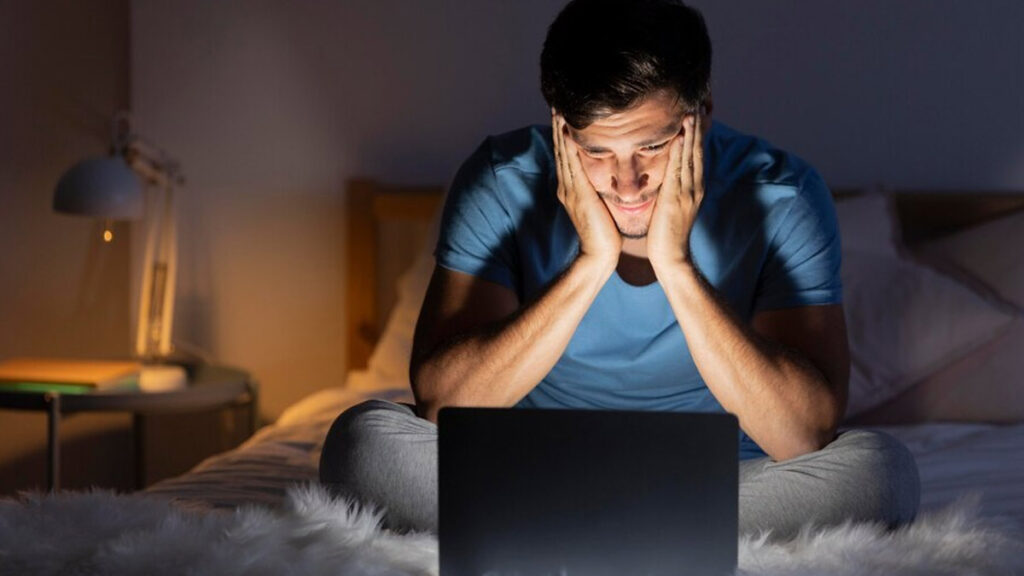In today’s digital age, screens are everywhere—whether it’s students attending virtual classes, homemakers watching videos, or professionals working online. Screens have become an essential part of daily life. But while technology has brought convenience, it may also be affecting your skin in ways you might not expect.
What Is Blue Light and Why Does It Matter?
The light emitted from digital devices like smartphones, tablets, and laptops is called blue light, or high-energy visible (HEV) light. While natural sunlight also contains blue light, the difference lies in how much time we now spend in front of screens and how close these devices are to our faces.
Blue light penetrates the skin more deeply than UV rays and can gradually affect the layers that keep the skin smooth and youthful. It has been found to damage collagen and elastin—proteins that maintain firmness and elasticity. As a result, individuals may notice early signs of skin aging such as dullness, dark spots, and fine lines.
Indoor Exposure Is Still Exposure
Many people assume that staying indoors protects their skin from damage. However, with most of our daily screen exposure now happening inside homes or offices, the skin continues to be affected. Whether it’s binge-watching a series or managing finances online, the long hours spent in front of screens are enough to trigger skin concerns over time.
Research shows that individuals with darker skin tones may be more likely to develop pigmentation from blue light. This makes it especially important to be aware of screen habits and their impact.
Common Skin Complaints Linked to Screen Use
People often visit dermatologists complaining of tired-looking skin, uneven tone, or stubborn pigmentation. In several cases, excessive screen time is a contributing factor. Although the damage isn’t always immediate, regular long-term exposure can lead to visible changes in the skin’s texture and tone.
Simple Steps to Protect Your Skin
There are easy measures you can take to reduce the impact of screen-related skin issues:
- Use Night Mode: Most devices have a night mode that reduces blue light emission. Turning this feature on can lessen exposure.
- Apply Sunscreen Indoors: Many people skip sunscreen when staying inside, but it’s important to wear a broad-spectrum sunscreen daily, even at home.
- Choose the Right Skincare Products: Look for creams and serums that contain ingredients like vitamin C, niacinamide, or iron oxide. These can help fight pigmentation and protect the skin from blue light.
- Take Regular Breaks: Step away from the screen every hour. This gives your eyes and skin a chance to rest and recover.
Final Thoughts
Screens are a permanent part of modern life, and avoiding them altogether is unrealistic. However, by being more mindful of your screen time and taking proactive steps to care for your skin, you can help maintain a healthy appearance for years to come.
Always consult with your doctor or a healthcare professional before making any major changes to your diet, lifestyle, or medical routine. They can offer personalized advice based on your current health condition and medical history.
Note – If you have any health-related concerns, please call us at +91-9058577992 to receive free consultation from our experienced doctors. Thank you.

